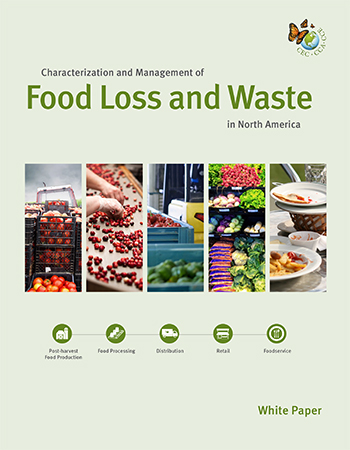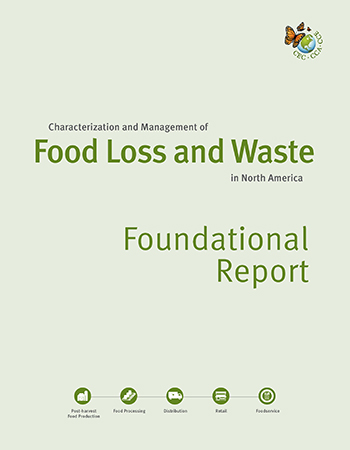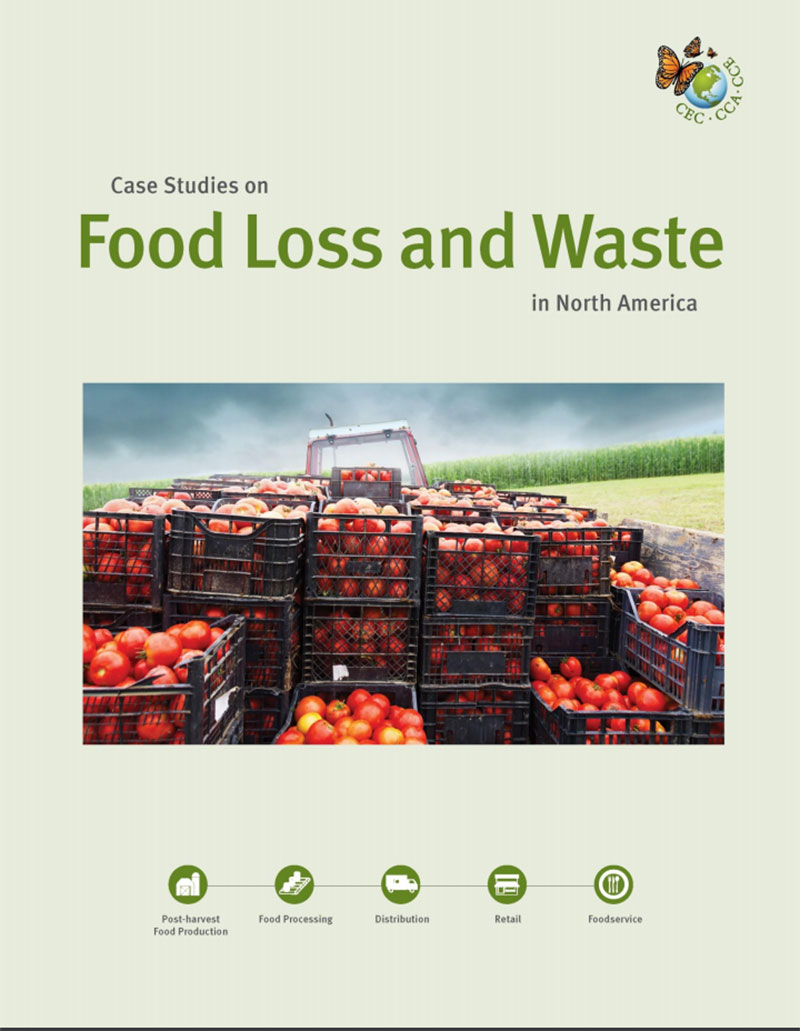
Food Loss and Waste Reports

Characterization and Management of Food Loss and Waste in North America – White Paper
Date of Release:
27/03/2018
With close to 168 million tonnes of food lost and wasted in North America each year, the issue of food waste commands our urgent attention. The CEC White Paper for the Characterization and Management of Food Loss and Waste in North America addresses some of the most fundamental questions about food loss and waste in North America—including how much food is lost or wasted, why this problem occurs, and at what cost to the environment and economy. Featuring a concise overview of the accompanying foundational report, the White Paper is a go-to resource for decision makers at all levels of government and food industry members. Along with essential facts and figures, readers will find a review of the current approaches and opportunities to reduce food loss and waste in Canada, Mexico and the United States.

Characterization and Management of Food Loss and Waste in North America – Foundational Report
Date of Release:
27/03/2018
As concern mounts regarding the issue of food loss and waste in North America, the CEC recognized the need for foundational research into food loss and waste volumes, sources, and environmental and socio-economic impacts. In response to that need, the CEC worked in collaboration with key stakeholders to develop Characterization and Management of Food Loss and Waste in North America—a comprehensive examination of the state of food loss and waste in Canada, Mexico and the United States. With an emphasis on source reduction of food loss and waste and the recovery of surplus food, the report chronicles some of the key approaches that are being used to mitigate food loss and waste in North America and beyond. The report will inform country-level strategies and supports international and domestic commitments of interest to the three countries. For members of the food industry involved in processing, distribution, retail, or foodservice sectors, this report presents an opportunity to learn from the experiences and best practices in the quest to minimize food loss and waste.

Noteworthy case studies on initiatives to reduce and recover food loss and waste
Date of Release:
29/03/2018
Discover a series of case studies on innovative food waste initiatives taking place within government, nongovernmental organizations and a wide cross-section of businesses operating at various stages of the food supply chain. Each initiative serves as an example of a promising solution to the problem of food loss and waste employed by various organizations (e.g., business associations, universities, nonprofit organizations, restaurants and supermarkets).